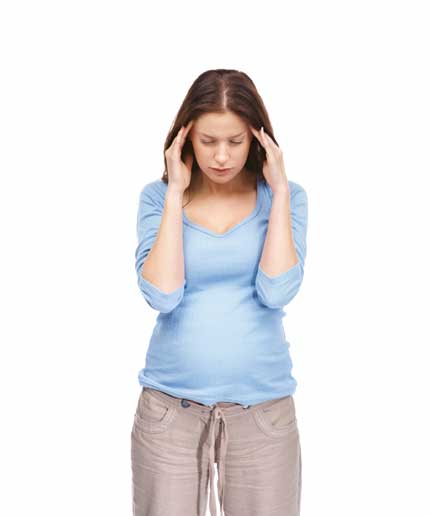 Migraines and colic? Who knew?
Migraines and colic? Who knew?
According to an online article on WebMD, infants whose mothers had a history of migraine have a higher incidence of colic. In the study, researchers compared the risk of colic in infants among 154 mother-and-child pairs. The mothers were surveyed at their child’s 2-month-old well-child visit at pediatric clinics in San Francisco. Researchers report that since migraines run in families, knowing a mother’s history of migraine or her child’s experience with colic could help identify those children who might be at risk for migraine later in life.
Nurturing local talent
We know that we live in an amazing tech-driven, innovative region that attracts highly educated brainiacs in many fields. After all, the Puget Sound area is home to Microsoft, Amazon, Starbucks, Costco, Nordstrom . . . the list goes on. Yet, that talent is often imported. Haven’t you noticed that those new parents at your child’s school came from, well, someplace else, to work at Google or Amazon?
The truth is, we’ve fallen behind when it comes to nurturing homegrown talent, particularly in less-affluent districts such as South Seattle and south King County. Students in these districts lag behind on achievement tests and other indicators of educational success.
That’s why the Community Center for Education Results has teamed up with the City of Seattle, the University of Washington, the Seattle Community Colleges District, the Puget Sound Educational Service District, the Bill & Melinda Gates Foundation and others to form the Road Map Project, a coalition working to double the number of South Seattle and south King County students pursuing a college diploma or career credential by 2020. For information on the project, go to ccedresults.org/the-project.
Stress and kids: toxic combo
“The Toxic Stress of Early Childhood Adversity: Rethinking Health and Education Policy” is the subject of an on-demand webcast now available from The Forum at Harvard School of Public Health. The hour-long program, recorded on Feb. 7, 2012 in Boston, examines how early childhood adversity can trigger the toxic stress response in children’s bodies and brains, leaving them at higher risk for problems in learning, behavior and health throughout their lifetimes — and how health and education policies might be used or revamped to better prevent or mitigate such problems.
Among the topics discussed was the January 2012 call to action issued by the American Academy of Pediatrics in the form of its policy statement “Early Childhood Adversity, Toxic Stress, and the Role of the Pediatrician: Translating Developmental Science into Lifelong Health.
Terrific talks!
ParentMap’s lecture series continues this month with Rosetta Lee, who speaks on “Parenting Essentials to Prevent Bullying,” April 10. Future lectures feature Julie Metzger and Rob Lehman (“Will Puberty Last My Whole Life?” May 1); John Gottman, Ph.D. (“Making Marriage Work,” May 10); and former vice president of Starbucks Howard Behar (“A Conversation with Teens on Passions and Life Purpose,” May 15). Learn more at parentmap.com/lectures.
Superstar status for STEM
Have you met STEM? If not, it’s time you did. Washington STEM is a nonprofit venture fund focused on promoting innovation, equity and excellence in science, technology, engineering and math (STEM) education. It supports new ideas in STEM education both in and out of school, and helps create business-education partnerships for students. Its goal is for all Washington state students to receive a robust education that prepares them for success. Last year, businesses and philanthropies in the state helped launch Washington STEM with its first round of investments, totaling more than $2.4 million and serving more than 8,500 students.
STEM was big news at last December’s National Science Teachers Association (NSTA) conference in Seattle, with Washington STEM playing a lead role in engaging educators, business leaders and policymakers from across the Northwest on issues surrounding STEM education today. For information, go to washingtonstem.org.
And speaking of STEM
Don’t miss the 2012 Seattle Science Festival, set for June, which will bring hands-on exhibits, shows, demonstrations and performances to venues throughout the region. The Festival will focus on educating all ages about STEM. It coincides with the 50th anniversary of both the 1962 Seattle World’s Fair and Pacific Science Center, which is spearheading the effort.
Festival programs and exhibitions will take place throughout the Puget Sound region with the majority free to the public. For more information, go to seattlesciencefestival.org.
Is it all about maturity?
Kids who are the youngest in their class have a greater chance of getting diagnosed with attention-deficit hyperactivity disorder (ADHD) than their older classmates, according to a recent Canadian study.
Researchers from the University of British Columbia in Vancouver studied kids in British Columbia, where the kindergarten cut-off date is December 31. Researchers found that children were 39 percent more likely to be diagnosed — and 48 percent more likely — to be treated with ADHD meds if they were born in December, as opposed to January.
In fact, the youngest boys were 30 percent more likely than their oldest classmates to get an ADHD diagnosis, and the youngest girls had a 70 percent greater chance, according to the study conducted by Dr. E. Jane Garland, a child and adolescent psychiatrist at the university.
“The potential harms of over-diagnosis and lack of an objective test for ADHD suggest caution be taken in assessing children for the disorder,” the authors report.
—Linda Morgan


